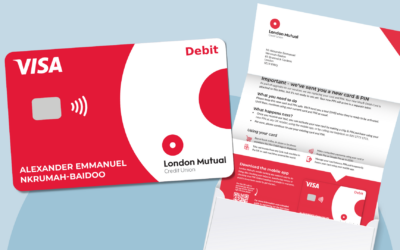It’s a time of year for scary stories and tall tales, such as creatures hiding under the bed and vampires sucking the blood of unsuspecting victims. But the scariest monster of all could be hiding in your bank statements. As we head towards the Christmas season of higher spending, it’s a good time to watch out for “Vampire Payments”. These are those sneaky credit card repayments that slowly but surely drain your finances.
The Minimum Payment Trap
As with trap doors in a haunted house, you don’t see it coming until it is too late. Here’s what we mean by ‘Vampire Payments’.
With most loans, you agree to pay a fixed amount each month to repay the loan. But with a credit card, it’s usually up to you, the borrower, to decide how much to repay each month. That gives you a lot of flexibility—but also risk.
Generally, it’s a good idea to pay off the whole thing every month if you can afford to. But sometimes, that won’t be realistic, especially if you have built up a large balance. So, instead, there is the option to make a ‘minimum payment’. This is tempting, as it can often be as little as £10 or £20.
Even though you may be avoiding late fees and other charges, it comes at a price. Most minimum payments are designed so that they are just enough to pay off the interest – but not the debt itself. This means that if you do this every month, the amount you owe may just keep on growing.
The result? An endless cycle of money down the drain that never gets you any closer to paying off the debt. Like a zombie that just keeps on returning, it takes more than the minimum payment to ward off your debt for good.
The Real Cost
The real cost of Vampire Payments is the money you lose without even knowing it. Even if you immediately stop using the card, the minimum payment means it could be years before you have even come close to paying off the credit card.
Let’s break it down with an example: Suppose you have a credit card balance of £1,000 with an annual interest rate of 18%. If the minimum payment is 2% of the balance, that’s just £20. If you only pay that minimum, it will take you over five years to pay off the debt, and you’ll end up paying over £500 in interest!
You also miss out on opportunities to put that money to work for you. Instead of paying off your other debts or starting to save money, you are trapped in a cycle of paying off your credit card. And even then, the balance just keeps on growing. Now that is scary.
Breaking Free of the trap
The key to breaking free of vampire payments is being strategic about how you repay your card. Even if you can’t afford to pay off the whole amount in one go, you should aim to pay as much as you can. The aim is to get the balance down as quickly as possible so that the interest stops stacking up. Some people also find tactics like the ‘snowball’ or ‘avalanche’ methods helpful in getting on top of their debts.
In Conclusion
Vampire Payments might not be as scary as real vampires, but they can still do enough damage to your finances. By staying sharp, you can avoid these hidden drains on your finances before it sucks you (and your wallet) dry.
Planning Ahead for Christmas with London Mutual
With the festive season around the corner, it’s a time when gifts, entertainment and other treats can quickly stack up. If you do choose to borrow, ‘planned’ borrowing, such as a loan from London Mutual, could be a better option. Monthly repayments are fixed, and there’s a clear end date, which will help you avoid Vampire Payments and other pitfalls that can come with borrowing using a credit card or overdraft.



